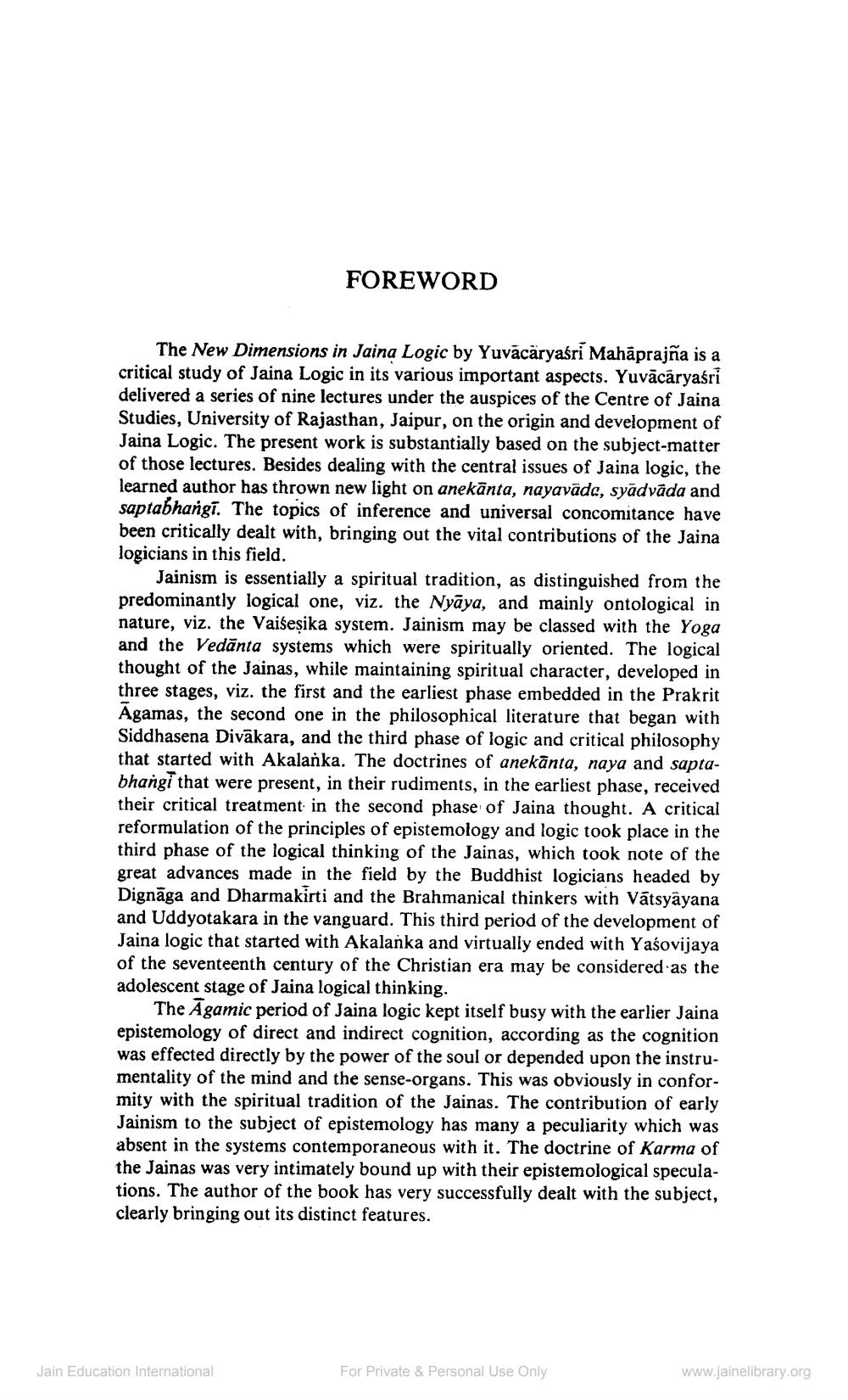________________
FOREWORD
The New Dimensions in Jaina Logic by Yuvācāryasri Mahāprajña is a critical study of Jaina Logic in its various important aspects. Yuvācāryasri delivered a series of nine lectures under the auspices of the Centre of Jaina Studies, University of Rajasthan, Jaipur, on the origin and development of Jaina Logic. The present work is substantially based on the subject matter of those lectures. Besides dealing with the central issues of Jaina logic, the learned author has thrown new light on anekānta, nayavāde, syadvāda and saptabhangī. The topics of inference and universal concomitance have been critically dealt with, bringing out the vital contributions of the Jaina logicians in this field.
Jainism is essentially a spiritual tradition, as distinguished from the predominantly logical one, viz. the Nyāya, and mainly ontological in nature, viz. the Vaiseșika system. Jainism may be classed with the Yoga and the Vedānta systems which were spiritually oriented. The logical thought of the Jainas, while maintaining spiritual character, developed in three stages, viz. the first and the earliest phase embedded in the Prakrit Agamas, the second one in the philosophical literature that began with Siddhasena Divākara, and the third phase of logic and critical philosophy that started with Akalanka. The doctrines of anekānta, naya and saptabhangi that were present, in their rudiments, in the earliest phase, received their critical treatment in the second phase of Jaina thought. A critical reformulation of the principles of epistemology and logic took place in the third phase of the logical thinking of the Jainas, which took note of the great advances made in the field by the Buddhist logicians headed by Dignāga and Dharmakirti and the Brahmanical thinkers with Vätsyāyana and Uddyotakara in the vanguard. This third period of the development of Jaina logic that started with Akalanka and virtually ended with Yaśovijaya of the seventeenth century of the Christian era may be considered as the adolescent stage of Jaina logical thinking.
The Agamic period of Jaina logic kept itself busy with the earlier Jaina epistemology of direct and indirect cognition, according as the cognition was effected directly by the power of the soul or depended upon the instrumentality of the mind and the sense-organs. This was obviously in conformity with the spiritual tradition of the Jainas. The contribution of early Jainism to the subject of epistemology has many a peculiarity which was absent in the systems contemporaneous with it. The doctrine of Karma of the Jainas was very intimately bound up with their epistemological speculations. The author of the book has very successfully dealt with the subject, clearly bringing out its distinct features.
Jain Education International
For Private & Personal Use Only
www.jainelibrary.org




